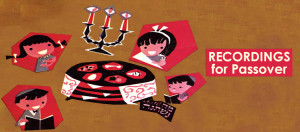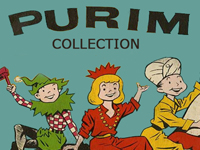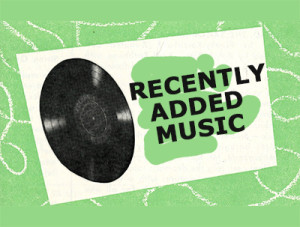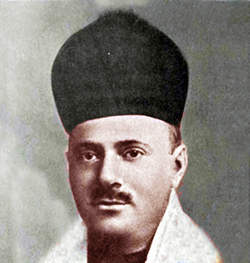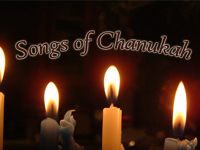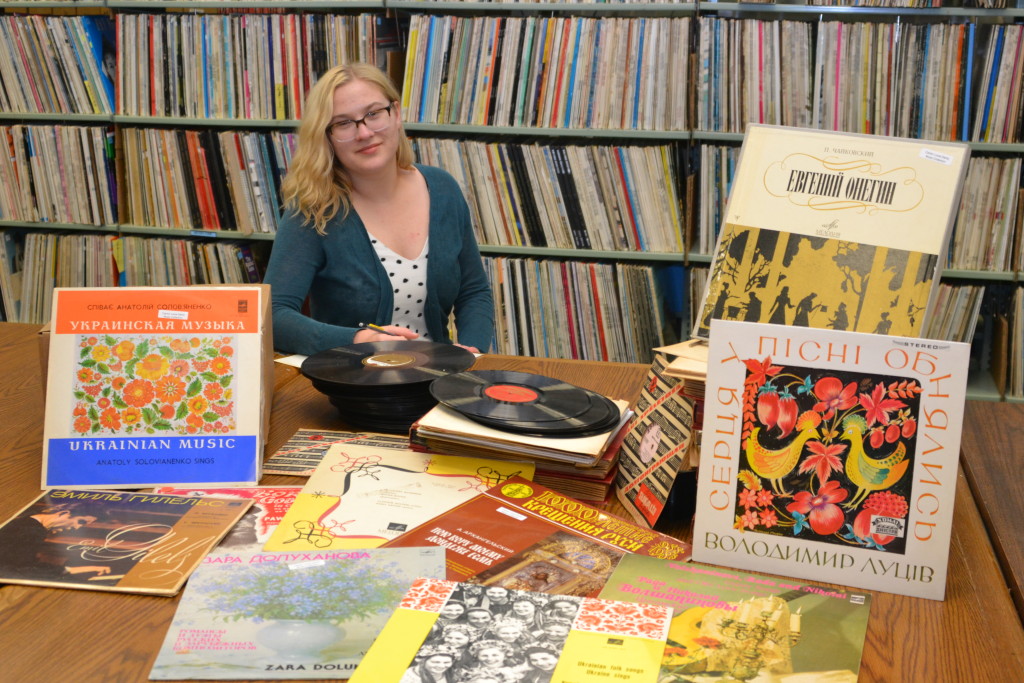 BOCA RATON, Fla. (Feb. 1, 2016) ─ A year before Ekaterina Pervova graduated from Florida Atlantic University, she went to the Wimberly Library’s Recorded Sound Archives (RSA) and inquired about a volunteer assignment. One of the 19-year-old’s first assignments was translating the titles of classical music recordings from Russian into English. Pervova, who was later hired as a student worker at the RSA, can’t imagine a more rewarding use of her free time.
BOCA RATON, Fla. (Feb. 1, 2016) ─ A year before Ekaterina Pervova graduated from Florida Atlantic University, she went to the Wimberly Library’s Recorded Sound Archives (RSA) and inquired about a volunteer assignment. One of the 19-year-old’s first assignments was translating the titles of classical music recordings from Russian into English. Pervova, who was later hired as a student worker at the RSA, can’t imagine a more rewarding use of her free time.
“I think that Florida Atlantic University has given me so much that it was important to find a way to give something back,” said Pervova, who in May earned a B.S. degree in psychology from FAU. “It was an amazing opportunity. I am very grateful.”
Volunteers have always been an integral part of FAU Libraries, but a couple of years ago, the Wimberly Library’s staff noticed more students were inquiring about volunteer assignments. Carol Hixson, Dean of University Libraries, supports such involvement, and in fact, has organized a program to recruit and involve students in meaningful volunteer roles throughout the library.
“Some of our students have free time throughout the day and many of them spend a great deal of that time in the library,” said Hixson. “We encourage students to take advantage of volunteer and internship opportunities within the Libraries as a way of learning more about our collections and services and gaining some practical experience to help them after graduation. We consider such opportunities to be another way we can contribute to our students’ success and keep them engaged with the University as alumni.”
The RSA, a robust digitization operation for all types of sound recordings that have been gifted to FAU, was a perfect match for Pervova. She credits her grandmothers, one a nuclear physicist and the other an economist, with introducing her to art at an early age. Both grandmothers love music, enjoy opera and the ballet, and always had the TV on an entertainment show when Pervova visited.
“They encouraged me to participate in singing, painting, dancing, sculpting and other arts,” said Pervova. “They would always take me to theaters and museums and they continue to find tickets when I visit them in Moscow.”
Many of the recordings that Pervova translates for the RSA are folk songs from 1910, while others are from the early 1950s and 1960s. She remembers hearing many of the recordings during childhood and at family celebrations in Russia.
“When I see something I know, I start humming it and I think back to a time when I heard that song,” said Pervova.
The biggest challenge Pervova faces while translating the music titles is trying to find a word-for-word translation. Many of the songs she is translating are about the culture of the Russian people and do not make sense outside of the Russian culture. She knows where to go for help, though.
“I often Skype my grandma while I’m translating to show her a particular record and when she sees it, she is delighted and she says ‘Oh! I know that one,’” said Pervova.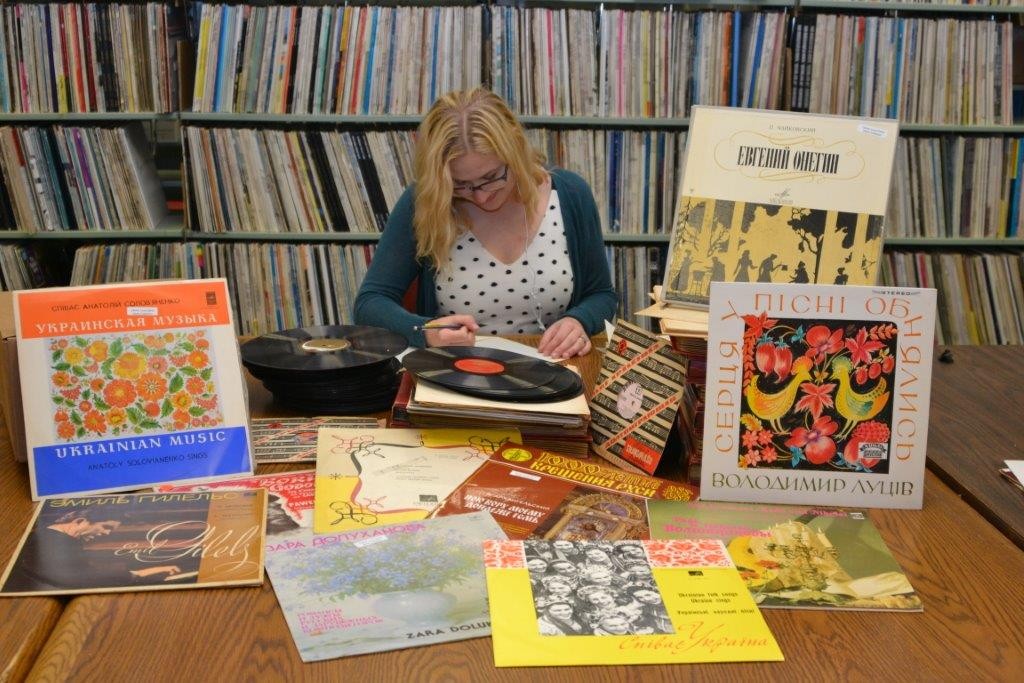
Russian Music Titles to Be Added…
The RSA will add the titles of the approximately 100 rare recordings that Pervova is translating to its database once the work is completed. Pervova will also translate the RSA’s Finnish labels into English. The recordings will be digitalized and made available on the RSA’s research station for professors and students.
Pervova said it’s her small way of giving back to the FAU campus, where she has studied since she enrolled in the Alexander D. Henderson University School in fourth grade. When it was time for ninth-grade, she was accepted into the academically-rigorous FAU High School, which offers students a chance to earn three years of college credit on FAU’s main campus. She plans to graduate from FAU in the spring of 2016 with a bachelor’s degree in psychology.
Tammy Ferguson, director of the A.D. Henderson University School/FAU High School, said she is very proud to say that “giving back” is part of the culture that has been created at the Henderson University School and FAU High.
“Ekaterina Pervova is an exceptional young lady who has impressed me from the first time I met her,” said Ferguson. “She has always given back to make sure other students have the best experience possible on the university campus.”
After graduation from FAU, Pervova would like to continue here for graduate school at FAU and work as a researcher on the FAU campus. Eventually, she would like to work for the Centers for Disease Control in Atlanta.
Pervova would like to focus her research on Brain Syndrome and dementia” and her ultimate goal is to find a way to help people with organic brain syndrome.
“Everything about the brain fascinates me, including its adaptability, its plasticity, its ability to modify and regulate itself through interactions with the environment,” said Pervova.
“I used dementia as an example because it is a very hot topic in the field. There are many different types of dementia, but the most common types are Alzheimer’s and vascular.
“It is imperative that a treatment for dementia is found soon because the major brain change involved in the disease is nerve cell damage and plaque deposits. If we can find a way to stop or reduce nerve cell damage, then we can find similar applications of this with other diseases.”
For more information on student volunteer opportunities at FAU Libraries, call 561-297-6911. Call 561-297- 0080 for student volunteer assignments in the Recorded Sound Archives.
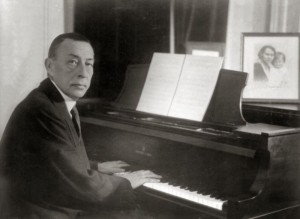 While digitizing recordings by Sergei Rachmaninoff at the Recorded Sound Archives, we found some interesting facts about Rachmaninoff that you may not of known. Such as did you know….
While digitizing recordings by Sergei Rachmaninoff at the Recorded Sound Archives, we found some interesting facts about Rachmaninoff that you may not of known. Such as did you know….


